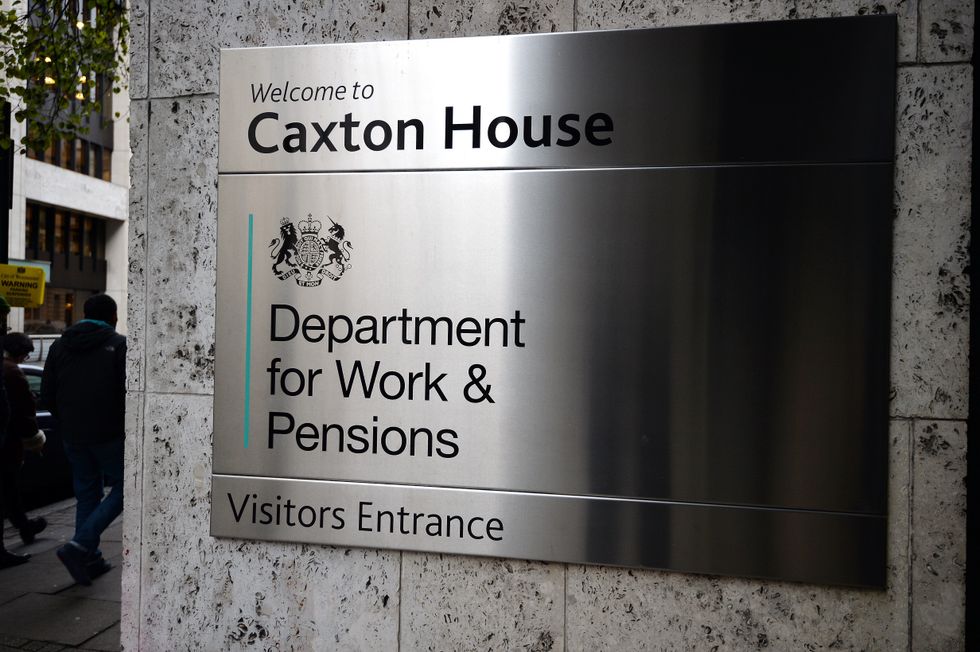
Daphne will now get her state pension uplift backdated to 2008
STEVE WEBB | DAPHNE AND TIM
A woman in her 80s missing out on a higher state pension rate can now expect the uplift to be backdated to 2008, plus interest and compensation.
Don't Miss
Most Read
Trending on GB News
Hundreds of thousands of women who missed out on a higher state pension could be able to get a significant boost, it’s hoped, after a pensioner couple won a case of maladministration against the Department for Work and Pensions (DWP) this week.
The issue relates to married women who could claim a 60 per cent “married woman’s pension” when their husband retired, but prior to March 17, 2008, they had to claim the uplift once their husband began drawing the state pension.
Those who didn’t claim the uplift could only backdate any increase by 12 months.
Women have complained they didn’t know they had to claim for a second time, arguing DWP measures to communicate the process were often highly ineffective.

The DWP has accepted the Independent Case Examiner’s recommendations in this individual case
PA
Steve Webb, partner at consultants LCP, said: “The old processes for alerting women to the need to claim their state pension twice were hopelessly inadequate.
“We’ve had it suggested that women should have gone to the Job Centre to get an information booklet or have been told that they had to rely on their husbands ticking a box on a form.”
In a landmark decision this week, a woman had her complaint of maladministration upheld, and the DWP has been told to pay all her missing pension as well as interest and compensation.
Daphne Bennett, whose surname has been changed, now 80, claimed her relatively modest state pension of £38.66 per week in August 2003, with the sum based on a National Insurance record of 42 per cent.
Her husband Tim, also 80, applied for his own state pension over the phone in early 2008, answering all the questions he was asked, including about his wife’s situation.
Daphne became eligible for a 60 per cent married woman’s pension at this point, but she would only get the higher rate if she submitted a further state pension claim form.
However, Tim says he was told on the phone no forms needed to be signed, and no claim form was issued to Daphne.
It was only in 2020 when Daphne saw coverage about married women’s pensions that she realised she could be getting an uplift.
She applied and successfully got an increase of around £24 a week, but this was only backdated to 2019.
Daphne complained to the DWP about maladministration, arguing she would have filled out a second claim form for the uplift if she had ever been told she needed to.
The complaint was rejected, but the Independent Case Examiner has now overruled the DWP, ordering the uplift to be backdated to 2008, plus interest and compensation for “distress and inconvenience”.
Mrs Bennett said: “When I first found out that I could have been on a higher pension for over a decade I was surprised and puzzled. Then when I claimed and was told it could only be backdated for one year, I felt it was unfair.
“It was their mistake, not mine. It has taken years to work our way through the complaints procedure, with the support of Steve Webb, but I’m absolutely delighted that my complaint has been upheld.
“My husband reads paperwork carefully and I would obviously have made a second claim for the higher state pension if anyone had actually told us that was how the system worked.
“I hope that those in positions of authority will look at what happened to me and accept that there are many other women in the same position and will put things right for all of them.”
LATEST DEVELOPMENTS:

Steve Webb said Daphne's case provided a 'glimmer of hope'
STEVE WEBB
While any ICE decision only relates to the particular circumstances of an individual case, and ICE has rejected several other similar complaints in recent months, campaigners say this ruling opens up the potential for other women to claim for compensation when they and their husband followed all of the correct processes but weren’t sent the necessary form.
The cases have now gone to the Parliamentary Ombudsman for further review.
Steve Webb, who is a former pensions minister, said: “After years of working with married women to challenge these antiquated state pension rules, we finally have a glimmer of hope.”
He added: “The scale of the problem shows that there was a systematic issue, and it seems to me highly likely that many women, like Daphne, were never sent the claim form that they needed. I hope that this landmark case will lead to many thousands more women getting justice.”
It’s claimed the DWP measures to communicate how the system worked to women included leaflets which were not sent routinely but had to be requested as well as relying on husbands passing on forms to their wives.
Since March 17, 2008, the “married woman’s pension” uplift was supposed to happen automatically, however, errors mean this was not always carried out correctly. The DWP is currently attempting to track down tens of thousands of women where the uplift wasn’t automatically applied.
While the DWP has accepted the ICE’s recommendations in this case, GB News understands it doesn’t represent a change in policy or bring people into scope of the ongoing state pension underpayments exercise.
A DWP spokesperson said: “As upheld by a court last year, married women whose husbands reached state pension age after them, but before March 17, 2008, are required by law to make a claim for an uplift to their state pension.
“Our priority is ensuring pensioners receive the financial support to which they are entitled and the action we are taking now will correct historical underpayments made by successive governments.”








